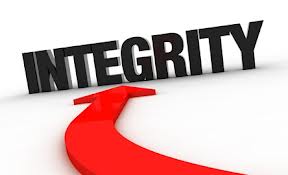Important Employee Values: Integrity and Trust
 I have urged compliance professionals to avoid scare-tactics as a way to enhance their importance in the corporate organization. It is too easy to run around and spread fear about the importance of compliance to prevent a government investigation and prosecution. That message is too negative and turns off listeners.
I have urged compliance professionals to avoid scare-tactics as a way to enhance their importance in the corporate organization. It is too easy to run around and spread fear about the importance of compliance to prevent a government investigation and prosecution. That message is too negative and turns off listeners.
Moreover, everyone in senior management knows the risks of a government enforcement action. They do not need a compliance person repeating this fear over and over as a way to increase their own importance and support a request for more resources.
Compliance professionals have to develop a new message – a positive message. Ethical companies are more profitable and sustainable. Corporate leaders like positive messages for obvious reasons – they hear lots of negative messages and worries all day long. When they are given a positive message, they can quickly decide whether to react or not.
We all know ethical companies. We all know they are more profitable in the long run. The reasons are fairly obvious – employees at ethical companies are more productive and less likely to leave a company that has an ethical culture. Employees want to feel good about their employer and its leaders. That is a basic human desire. Everyone can relate to that idea.
Employee surveys have identified two important concepts for employee morale. The number one value cited by employees is integrity, and the second most important value cited is trust. Again, we can all understand why the surveys confirm what we already suspect.
Employees want to work for an organization that operates with integrity – from its senior leadership to the lower levels of corporate employees. An organization that promotes integrity, by definition, supports its employees as important actors in ensuring and promoting integrity in the company’s operations.
Culture breakdowns occur when this fundamental concept is violated. Senior managers that appear to act outside this basic principle, or who are treated differently than other employees can quickly undermine the organization’s integrity.
Similarly, employees are willing to trust a company, and want to see this basic trust protected and promoted. When corporate actors violate this trust, especially senior leaders or mid-level managers, employees are acutely aware of a break in this trust. Employees are quick to question such actions and may not be willing to forgive a company.
Through this prism, it is easy to understand why senior managers need to set examples for others to follow. A CEO who turns down certain company perks can quickly build capital with employees. A senior manager who commits to responding to employee concerns, and does so with integrity and efficiency, will earn significant loyalty and trust.
 Once established, a culture of integrity and trust has to be guarded carefully, protected from misconduct and promoted as a consistent value within a company. It is an asset of considerable value. Call it ethical goodwill.
Once established, a culture of integrity and trust has to be guarded carefully, protected from misconduct and promoted as a consistent value within a company. It is an asset of considerable value. Call it ethical goodwill.
The C-Suite has to recognize that its culture of integrity is invaluable, and has to attend to it to cultivate its growth. A CEO either recognizes the importance of this concept – it is not an issue that a CEO can fake or devote minimal time. Instead, a CEO either pushes the culture of integrity throughout an organization, or pays lip service to the culture issue.
















I like your way of handling this problem that lawyers all face: how to raise awareness. The fear approach is the most natural and obvious way, but the positive approach is quite interesting. Certainly a educated mix of both approaches (depending on the company at stake) would be best.